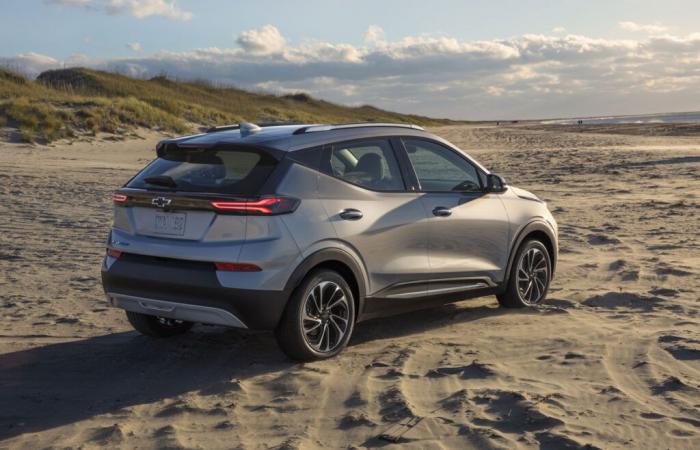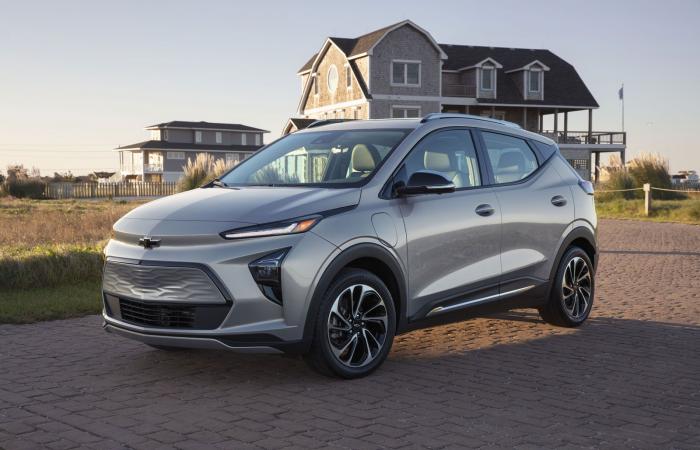-
The Chevrolet Bolt EUV is scheduled to debut in 2026, starting at around $20,000 after federal tax incentives.
-
GM’s affordable BEV model offers 275 miles of range with updated technology and safety features.
-
Demand for low-cost BEVs is increasing, with Gen Z showing strong interest in electric ownership.
General Motors’ 2026 Chevrolet Bolt EUV, scheduled to debut in 2025, is expected to have a starting price of around $20,000, including a $7,500 federal tax credit. With a base price expected to be below $28,000 ($30,000 in Canada), the revamped model demonstrates GM’s desire to offer affordable electric vehicles (EVs).
Affordable EVs meet a key demand from Generation Z and millennials, who are the demographic groups most interested in EV adoption. Generation Z is the fastest growing segment when it comes to EVs, with 69% expressing interest, while 72% of millennials see EVs as an integral part of the future of ownership of a car. With younger buyers facing financial barriers, the limited number of sub-$25,000 models on the market has hampered broader access to entry-level EVs. In 2018, in the United States, there were 15 such models; today, that number has dropped to 10.
Although GM has yet to reveal specific features and pricing for the updated Bolt EUV (no more hatchback version), a company insider mentioned that pricing will align with other competitors Low budget EV. The early starting price of $20,000 after incentives positions the Bolt EUV as a strong competitor against other budget offerings, including Ford’s upcoming subcompact EV and Stellantis’ electric Jeep project.
The new Bolt EUV, powered by GM’s Ultium battery platform, is expected to have a range of around 270 miles. The model will be equipped with GM’s latest safety systems and connected car technology, including Super Cruise, GM’s hands-free, eyes-open assisted driving system.

Automakers in the sector are increasingly recognizing the need for accessible entry-level EVs. According to JD Power, the average price of an EV in the United States remains around $53,376, or 10% more than gas-powered vehicles. The leaders of the American automotive market have renewed their commitment to financial accessibility. Ford CEO Jim Farley, speaking at the Aspen Ideas Festival, highlighted the importance of EV models in the $25,000 to $30,000 range, insisting that widespread adoption depended on financial accessibility.
The next-generation Bolt EUV could also serve as a benchmark for upcoming affordable EVs from Stellantis and Ford. Both aim for comparable pricing to encourage mass adoption. Stellantis, for example, plans to launch a $25,000 Jeep EV, although its timing remains under review due to restructuring efforts.
Although Chinese automaker BYD has not expressed current plans to enter the United States with its ultra-low-cost Seagull EV, analysts note that increased price competition from foreign brands remains possible. Under existing tariffs, a BYD Seagull made in Mexico could still be sold for a higher price than the U.S.-assembled Bolt, once tax credits are taken into account.










